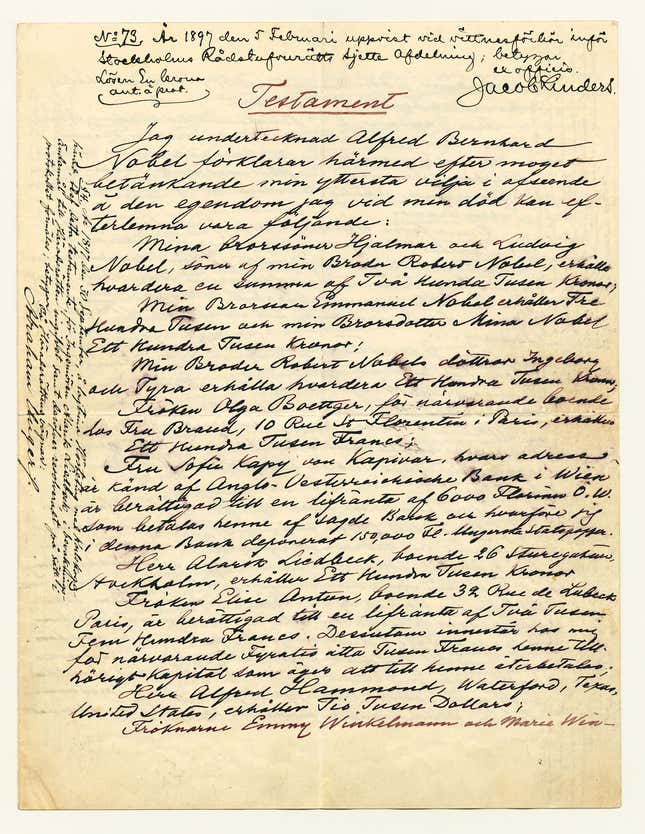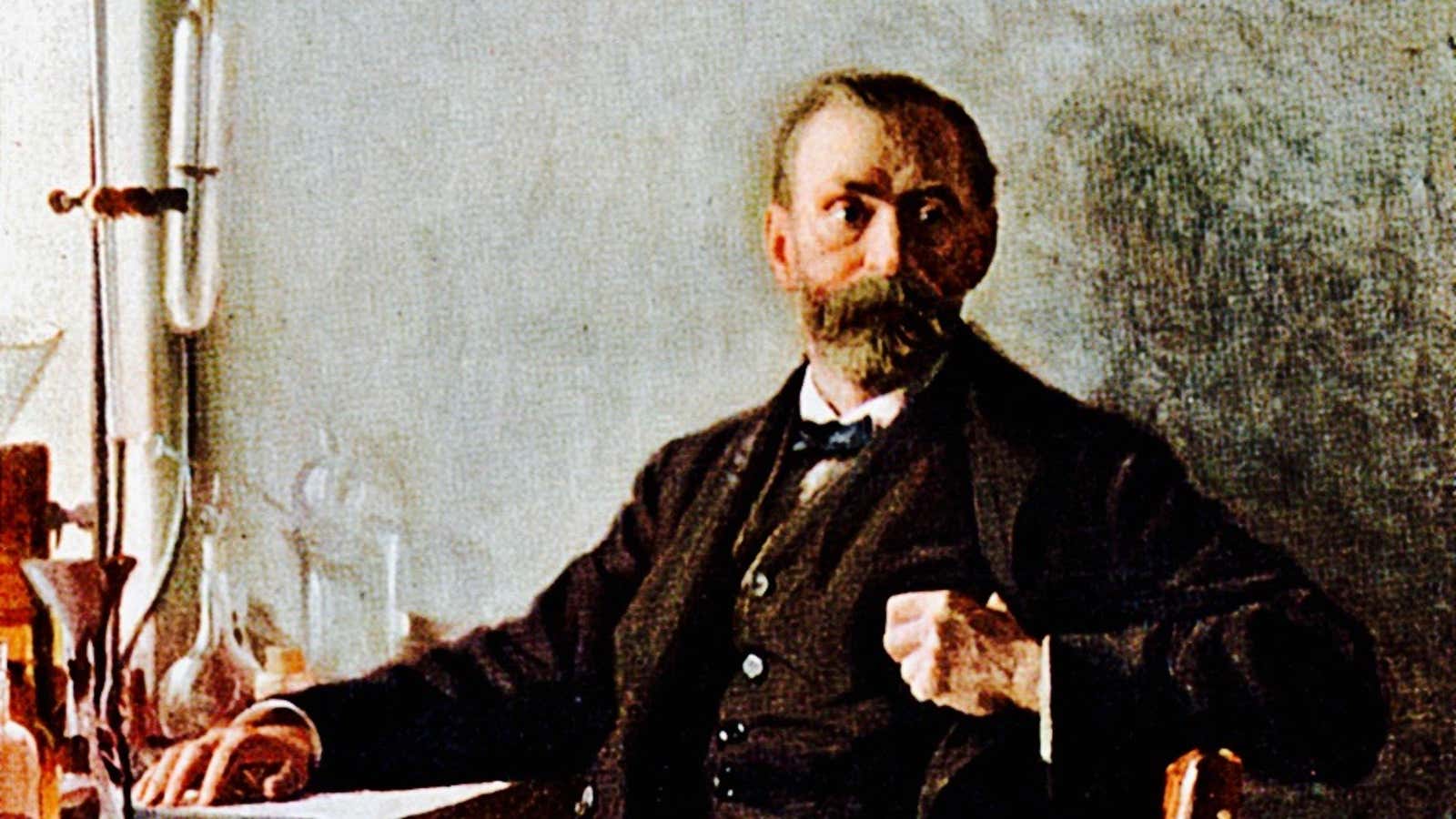Fame can be a burden, depending on how you make your name. Take Alfred Nobel. We now associate Nobel with international prizes for peace, science, and literature, but during his life, he was dubbed the “angel of death” by the press.
Nobel was a 19th-century Swedish chemist whose explosive success seems to have led to regrets. He never explicitly said as much, but in retrospect, it appears based on his actions and some evidence from his records that the scientist didn’t want to be remembered for what made his fortune: dynamite. So he created one of the world’s most prestigious annual international prizes, like the award for medicine announced today (Oct. 2).

When he died in 1896, Nobel left a fund in his will for the creation of the eponymous prizes, first awarded in 1901. It included a grant for the person who accomplished “the most or the best work for fraternity among nations, for the abolition or reduction of standing armies and for the promotion of peace congresses.”
This wording was particularly poignant coming from a man who perfected destruction. In the 1860s, the chemist experimented with controlled explosions for industrial purposes, fiddling with nitroglycerin and black powder (an early form of gunpowder), looking for a stable combination.
It had mixed results. In 1864, a nitroglycerin factory Nobel built exploded, killing one of his brothers. Yet the chemist had a feeling he was on the cusp of an invention that would change the world, so he continued his work. In 1867, Nobel discovered that mixing nitroglycerin with kieselguhr, an earthy silica used as filler in chemicals, made the nitroglycerin safer to handle and allowed for better control over explosions. He called the blend “dynamite,” stemming from the Greek word for power, dynamis, and was soon granted patents for his invention in Europe and the US.
Business boomed. Controlled explosions found numerous uses, including canal cutting, road building, tunnel blasting, and more. Nobel built factories and amassed a fortune. He refined dynamite continually, creating an even stronger explosive called “blasting gelatin” in 1875.
The inventor worked on other products, too, like artificial silk and leather, and even wrote novels (none of which were published). But dynamite was Nobel’s big business. In fact, it led him to eventually work on armaments, despite his claim that he was a pacifist, according to the Nobel Foundation’s rumination on the chemist’s attitudes about war and peace. According to the 19th-century Austrian peace activist, novelist, and countess Bertha von Suttner, when she first met Nobel in 1876, the chemist told her he hoped to invent a material so explosive it would end war itself. In 1891, Nobel justified his 90 explosive and armaments factories to the peace activist, saying, “[T]he day that two army corps can mutually annihilate each other in a second, all civilized nations will surely recoil with horror and disband their troops.”
This was a gross miscalculation. Wars continued, and nations didn’t recoil. And later Nobel prize winners would relate to the scientist’s seeming misgivings about his life’s work.
“Nobel invented an explosive more powerful than any then known—an exceedingly effective means of destruction. To atone for this ‘accomplishment’ and to relieve his conscience, he instituted his award for the promotion of peace,” said 1921 physics Nobel prize winner Albert Einstein, speaking in 1945 after atom bombs that his work contributed to were dropped on Japan.
